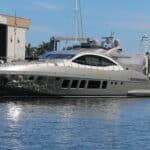Charleston, South Carolina Maritime Attorneys
At Cooper and Bilbrey, P.C., we are Charleston Maritime Attorneys with years of experience assisting clients with drafting, interpreting, and negotiating contracts for the purchase, sale, or charter of commercial and recreational vessels and dealing with other types of maritime contracts. Whether youneed help drafting or understanding a demise (bareboat) charter, time charter, voyage charter, or a purchase agreement, we are ready to assist. Call or email our Mount Pleasant office today for a free, confidential consultation with no obligation.
We Help Clients With Purchases And Sales Of Vessels
Although, technically speaking, contracts for the sale and purchase of vessels are not maritime contracts, as admiralty lawyers, we assist clients with these matters to try to help them understand the ins and outs of the transaction to avoid litigation. We are also regularly involved in disputes which arise out of boat purchases, most of which involve buyers and sellers who did not get legal advice during the transaction. In recent years, the sale and purchase of relatively expensive new and used pleasure boats has become commonplace, thus the stakes for buyers and sellers and making it all that much more important to either know the law or seek assistance from those who do prior to closing.
The attorneys at Cooper and Bilbrey, P.C. have almost forty years of combined experience in the legal field and are knowledgeable and experienced in assisting clients with vessel sales and charters. If you have questions regarding a sale or charter, please call or email us today for a free, confidential consultation with no obligation.
A Few Tips For Boat Buyers – Caveat Emptor
For many, a vessel purchase represents a substantial investment of time and money, and there are a few ways that boat buyers can try to ensure that they are getting a fair deal. The old saying is as true today as it has ever been – Caveat Emptor – Let the Buyer Beware.
- First, read the sales contract thoroughly and know what you are signing. If you are purchasing a boat from a dealer, educate yourself on whether there is a hull warranty from the manufacturer, warranties on the engines and other machinery, or dealer warranties, and if so, what you need to do to have them apply to your vessel. Many sales contracts for used vessels contain “as-is” language. If yours does, make sure that you know whether this applies to the dealer, the manufacturer, or both. If you are buying a used boat or a boat from an individual and the seller doesn’t have a contract, draft a simple document that sets out the terms of the deal and have everyone sign it.
- Second, get a survey. A survey is a must for all but the smallest of vessel purchases. A good marine surveyor will give you the information that you need to make an educated decision on the condition of the boat and thus whether the purchase price is fair. A list of some of the marine surveyors in your area can usually be found through the Society of Accredited Marine Surveyors (“SAMS”) at WWW.MarineSurvey.org or the National Association of Marine Surveyors (“NAMS”) at WWW.NamsGlobal.org.
- Third, do a title search on vessels which are state titled or documented. Maritime liens are secret liens, and do not need to be filed to be valid, but liens on documented vessels can be filed at the National Vessel Documentation Center, and an abstract of title can be cheaply and quickly obtained to make sure that there are no liens of record which have not been disclosed. A similar process is available to prospective purchasers at the Boating Division of the Department of Natural Resources in South Carolina. This will also allow you to see the ownership history for the vessel.
- Fourth, purchase Protective and Indemnity (“P&I”) and Hull insurance from a reputable marine insurer who can explain what types of coverage that you may need. Marine insurance policies can have geographical, temporal, and other limitations for coverage which your broker should explain and recommend a policy which is suitable based on your individual circumstances. You may also consider purchasing title insurance for a used vessel. Traditionally, title insurance was not availible for vessels, presumably because of the secret nature of maritime liens, but in recent years, a few marine title insurance companies have started offering title insurance at fairly reasonable rates. It is important, however, to read and understand what coverages that you are actually purchasing with such a policy.
- The last, and probably the most important tip for vessel purchasers is to purchase only from reputable individuals and companies. If there are problems with the vessel after your purchase, your recourse will likely be against the seller or through warranties offered by the manufacturer and seller. Warranties are only as good as the solvency of the seller, and buyers should be sure to purchase from someone who can either fix the problems when they are discovered or who have resources to pay a judgment if you are forced to bring a legal claim for title or other defects.
Buying a boat is an expensive venture, and there is no way to eliminate the risk involved in these transactions. However, doing business with reputable persons and companies and taking the time to get important information on the vessel prior to your purchase will reduce the risks and allow the buyer to make the most informed decisions possible.
If you would like assistance with any of the following aspects of purchasing a vessel, please call or emailCooper and Bilbrey, P.C. today to schedule a free, confidential consultation with no obligation:
- Checking for liens or mortgages
- Assessing the financial solvency of the seller
- Obtaining title insurance
- Assisting with closing
- Buy sell agreements
- Making sure the vessel is property documented
- Recommending good documentation services
- Negotiating, drafting and reviewing contracts
- Negotiating price
- Working with brokers
- Inspections
- Due diligence
- Sea trials
Breach Of Yacht Dealer Or Manufacturer’s Warranty
Yachts and other pleasure boats are consumer goods as defined in the South Carolina Uniform Commercial Code and the Magnuson-Moss Warranty Act, the federal law pertaining to warranties of consumer goods. Generally, manufacturers of yachts must live up to their warranties, both expressed and implied. A yacht purchaser must give notice of defect or problem and give the manufacturer fair opportunity to cure it. If a court determines that a manufacturer breached its warranty and failed to fix the defect or problem, a yacht purchaser may be entitled to damages and attorneys’ fees.
Tips For Boat Sellers – Caveat Venditor – “Let The Seller Beware”
Vessel sales within South Carolina are different from sales in other states with regard to statutory and common law requirements for sellers. Courts have said that sellers must provide a “sound commodity” to the consumer and require sellers who do not wish to provide warranties on a vessel to disclaim warranties with specific procedures. If these procedures are not followed by sellers, then in many cases the law will provide the purchaser with implied in law warranties enforceable against the seller. In addition, there are laws which require sellers to disclose material, latent defects in the vessel to any potential purchaser. Knowing what your duties are under the law as a seller can help prevent litigation after the vessel is long gone and the proceeds of the sale spent on other things.
Seller Financed Transactions
When selling a boat many vessel owners provide owner financing to attract purchasers, but owner financing is never risk free. Here are some suggestions to reduce the risks of owner financing in vessel sale transactions.
- Check the credit history and financial condition of the buyer. Financially shaky buyers attract problems and a judgment or tax lien against a buyer may attach to your boat when he buys it. Look for a sound buyer with a clean credit history.
- Require a substantial down payment which represents a real investment by the buyer. Buyer motivation gets loans paid.
- If the vessel is documented with the U.S. Coast Guard, file a Preferred Ship Mortgage with the National Vessel Documentation Center for a high priority maritime lien which will outrank all landside liens and non-preferred maritime liens. See Maritime Liens
- Require the buyer to carry adequate hull insurance on the vessel and adequate protective and indemnity insurance to protect against liability. Vessels sink, catch fire, run aground, collide with bridges, and are arrested by government authority. Uninsured buyers after a casualty are less likely to pay your loan. Proper hull and P&I insurance will protect against many, but not all, of the risks.
- Become an additional loss payee on any insurance coverage, so that insurance proceeds will be applied to repair the vessel or to your loan before being paid to the buyer.
- Protect against a breach of warranty by the buyer, which would otherwise void insurance coverage, by insisting on a breach of warranty endorsement.
- If your boat is registered with the Boating Division, consider documentation. If documentation is not an option, have your lien recorded against the title and retain the title in your possession until your loan is paid.
Remember, the only risk free scheme of vessel financing involves one easy payment – 100% cash at time of sale. One old financing contract came close when it provided, “until this obligation is paid in full, the vessel shall remain moored at lender’s dock, her sails shall remain in lender’s fish house, and borrower shall sleep on lender’s side porch.”
In today’s increasingly complex world, those uncomfortable with the risks inherent in such a transaction would be well advised to seek out the services of an experienced yacht broker who can help you properly market your vessel to ensure maximum return as well as guard against unnecessary risks.
Chartering Vessels
Charters are nothing more than specialized leases of vessels and their equipment. The admiralty law recognizes three different classes of charters, demise charters, also called bareboat charters, time charters, and voyage charters. Whether you are a maritime business owner who charters vessels to the public or charters vessels to move goods from one port to another, or you are an individual contemplating charter of a pleasure boat, we can assist in the drafting, interpretation, or negotiation of your charter agreement.
Let us put our experience to work for you. Call or email our Charleston, South Carolina Maritime Attorneys today for a free, confidential consultation.







